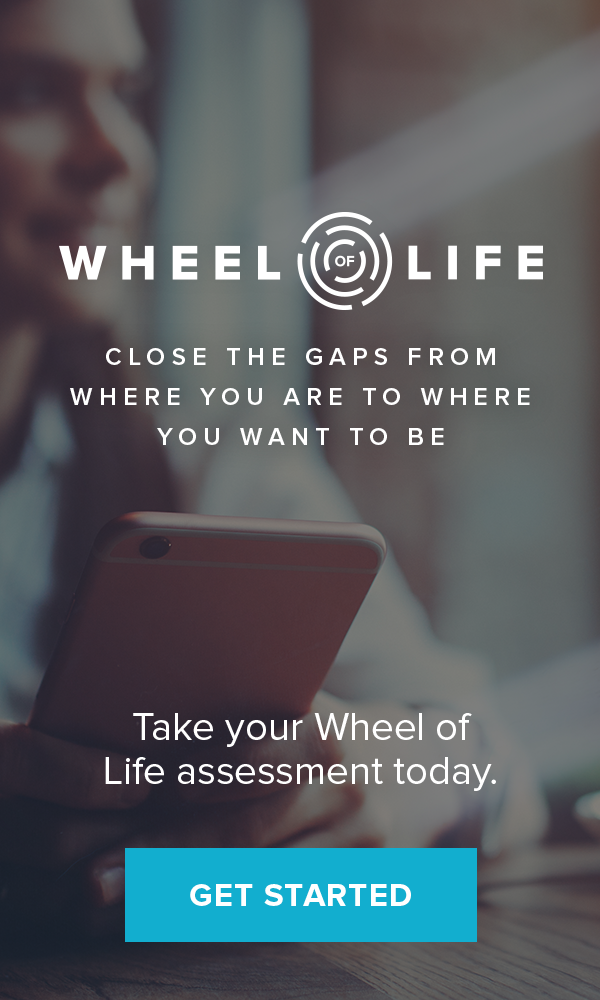Team Tony cultivates, curates and shares Tony Robbins’ stories and core principles, to help others achieve an extraordinary life.
How to steal the show
A Q&A with Michael Port on the mastery of public speaking
We tend to think public speaking skills are meant for politicians and CEOs, or merely reserved for those special occasions when we have to address a large audience (weddings, anyone?). And for most of us, the idea of public speaking makes us quiver with anxiety. But what if I told you that every time you engage with another individual, even in the most casual of settings, you are utilizing your natural public speaking skills?
That’s because public speaking is essentially about effective communication. Whether you are pitching your business to a small group, chatting with a neighbor, or speaking to thousands of people – the goal is to engage and to connect, which is what public speaking is all about. That’s why we sat down with public speaking expert and best-selling author, Michael Port to discuss just why public speaking is so important, and what you can do to develop your skills and leverage them to make real strides in both your personal and professional life.
Why is it so important to develop public speaking skills? And can you speak to the performance element involved when communicating with others?
Warren Buffet was giving a lecture to a business school class, and said, “Right now, I would pay $100,000 for 10% of the future earnings of any of you…or you can improve your value by 50% just by learning communication skills – public speaking. If that’s the case, see me after class and I’ll pay you $150,000.” He was making the point that public speaking might be one of the most important “soft skills” to develop as a professional.
Now, it really goes much further than that; it’s not just for professional purposes. Your ability to get people to say “yes” to you in both your business and personal life influences the quality of your life. And, the most important skill for being able to influence people is the ability to communicate in such a way that you encourage, inspire and excite people to say yes to you. Because if you think about your day, whether you’re talking to your kids, spouse, neighbor, parents, colleagues, boss or the police officer who pulled you over because you were going just a little too fast, for the most part (unless it’s just banter) you’re trying to get them to think differently, to feel differently and to act differently. So, what’s more important than being able to communicate effectively?
Can you give some practical how-to’s (or what not to do) when it comes to public speaking?
I can give you a thousand, but let’s focus on these:
1) Don’t look down. One of the habits that people often develop is they continuously look down when thinking of what to say next instead of engaging with the audience. You disconnect with the audience, creating a separation. If you continually create that separation, those small little bits of disconnect often produce a distance between you and the people you’re trying to affect.
2) Don’t pace. I actually heard someone give advice suggesting that in order not to pace, they would clench their butt cheeks so not to walk around; but in my humble opinion, it doesn’t help someone stay at ease. Plus, your butt will be pretty fatigued. The reason we pace is because we haven’t worked at staging our presentation. When an actor works with a director, their movements are staged – not faked, but staged. They know where they’re going, when they’re going there, and why they’re going there. Otherwise, they stay in one spot. When we work with beginners and with A-listers (top of their fields), we often ask them to evaluate themselves on a number of fields. The number where both of these groups rate themselves the lowest is blocking and staging (where a performer is moving to at any given point in the performance).
3) When telling a story, there’s no need to tell the audience you’re telling them a story. Just tell them the story. Additionally, there’s no need to ask them to tell you a story. God forbid someone in the audience says, “No, can you talk about X instead?” Just tell the story.
4) All audience interaction should be proportionate to the amount of trust you earn. Often times speakers take for granted if audiences are willing to participate and then the speaker will ask them to do things or say things that the speaker hasn’t yet earned. For example, I saw a speaker start a speech by saying “Please raise your hand if you’re in debt.” Now, if you’re Oprah or Tony Robbins, you can do anything. They know you. But this audience most likely doesn’t know you and isn’t comfortable sharing their deepest darkest secrets to strangers. It can be confrontational and put them on guard, which reduces your ability to connect with them. Part of our jobs are public speakers is to break down barriers, so that we can make deeper and stronger connections with our audiences.
We hear a lot about the value of bringing authenticity to the table. In your opinion, what does that look like?
Authenticity has become quite the buzzword, and sometimes the advice you’re given when you’re looking for public speaking help is to just be yourself. Frankly, that might not always be the best advice because there’s many different aspects to the self. As I discuss in Steal the Show, the role you play in one situation is different than the role you play in another situation. For example, the role you play with your friends from college is different than the role you play representing your company on a sales call. Plus, fact of the matter is, we’re not always in the mood to give the presentation that is necessary at that particular moment. So, if you’re just being yourself, what are you going to do: give a presentation and say, “I don’t really want to be here, I’m kind of annoyed, you should have bought this product the first time I pitched it to you”? Of course not. You’ll be kicked out of that office faster than you can say, “I need help with my public speaking.”
So, at the same time, in order to be what people often think of as authentic, we don’t want to develop a persona in order to represent ourselves as anything other than who we actually are. We don’t want to behave in a way that we think others expect of us if that is not an authentic way of being for us. We want to amplify the best and most compelling parts of our personality and try to overcome some of the less productive aspects of our personality. For example, if your normally tend to be soft-spoken, monotone, and flat in your typical communication, just being yourself on stage may not get the job done. You’ll want to learn how to find contrast in your voice, your speech patterns, rhythm, pace, tonality and physicality, in order to be more engaging – because that’s your job in any given moment.
You speak a lot about creating a “personal brand identity” – can you break this down for our audience?
This is something that I go into detail about in chapter three of my first book in Book Yourself Solid. I think there are two main components to this:
1) Your “who and do what” statement (who you serve and what you help them do). It helps you clarify for yourself and others the result you produce for them because they don’t know if you’re relevant to them professionally unless you help someone like them get what they want.
2) Your “why you do it” statement (what you stand for, why you get up every day to do the work that you do). That’s what drives you emotionally, philosophically. It’s much more important, I think, than people realize because there are a lot of people who can help the same people you do to get what they want. And often, business owners compete on that rather than making the all important emotional, philosophical, and psychological connection with clients based on what they stand for. The people that are hiring want to know if you see the world the way they see the world. If you can get them on that, you are in.
What are your best tips for being likeable and for relating to others?
People like friendly people, but if they don’t feel that you are real, they might think you’re from LA. Just kidding. I don’t want hate mail from people in LA. But, you know what I mean – that sort of phony fakeness that you’ll sometimes feel when someone says, “Let’s do lunch” and you know you’ll never hear from them. It’s essential to be friendly, but it’s also essential to be real. I don’t mean telling your neighbor you don’t like their new hairstyle. I mean real as in what we were talking about when we were addressing authenticity.
Additionally, if you want to be more likeable, work on being more empathetic. Excuse the generalization, but I think it’s safe to say that women are generally more empathetic than men. Many men can take a cue from the women in their life to work on empathy.
Finally, if you want to be more likeable, focus on being relevant. Relevant people are popular; popular people get the most attention; those with the most attention get the most business. If Webster’s called me up and said I can change any word in the dictionary, I would like to replace the word “marketing” with “relevancy,” because if you want people to pay attention to you (i.e., like you), focus on being as relevant as you can possibly be. If likeability is important, read Tim Sanders’s wonderful book, Love is the Killer App.
Header image © Shutterstock / Monkey Business Images




